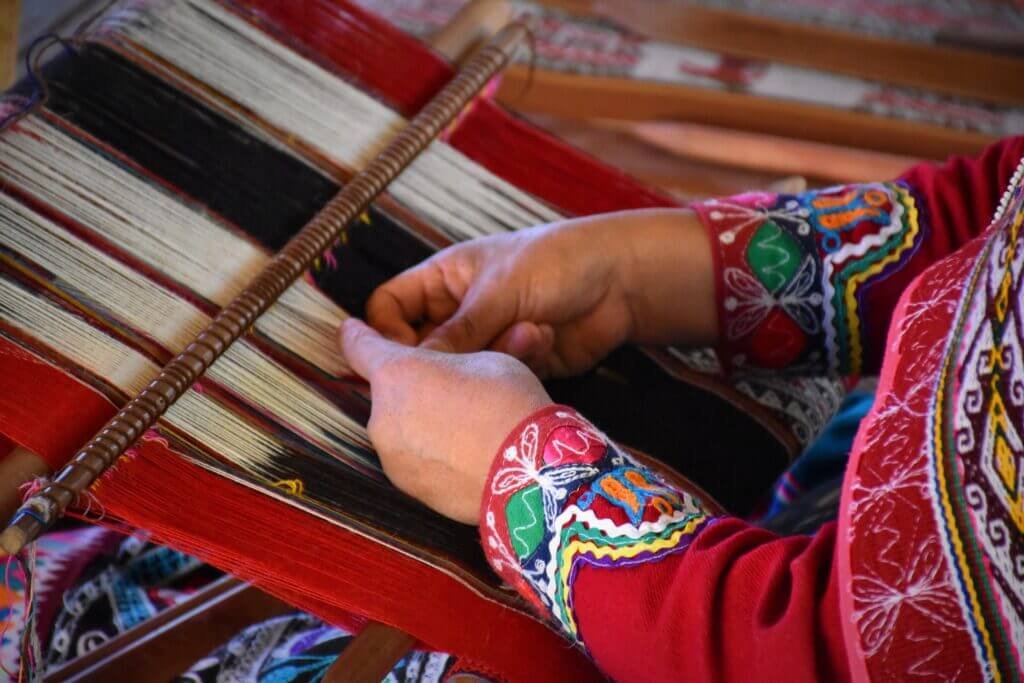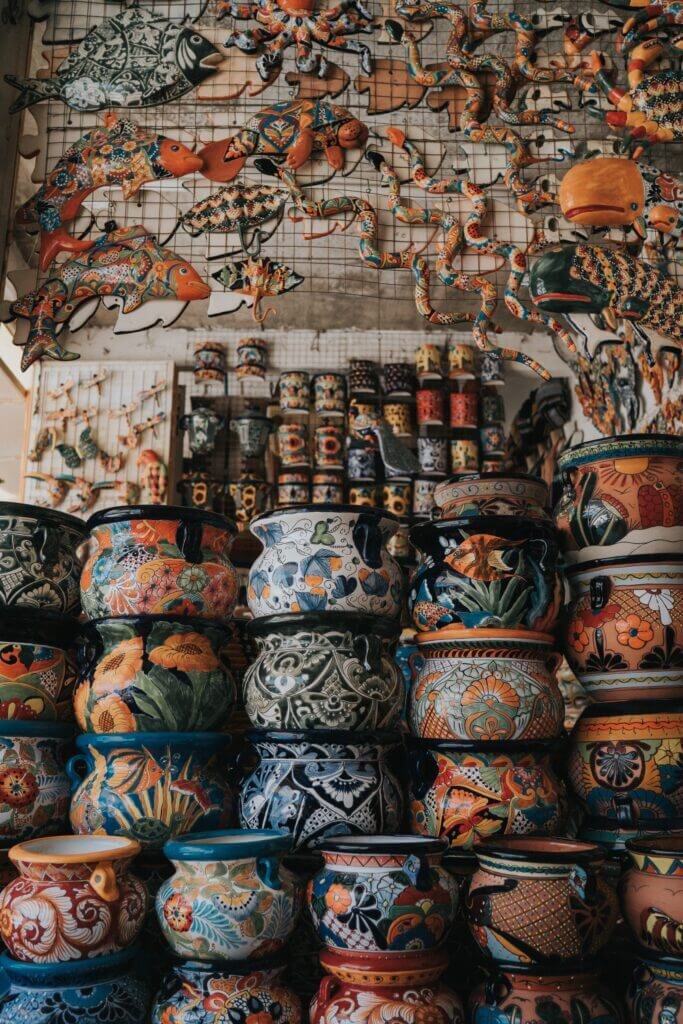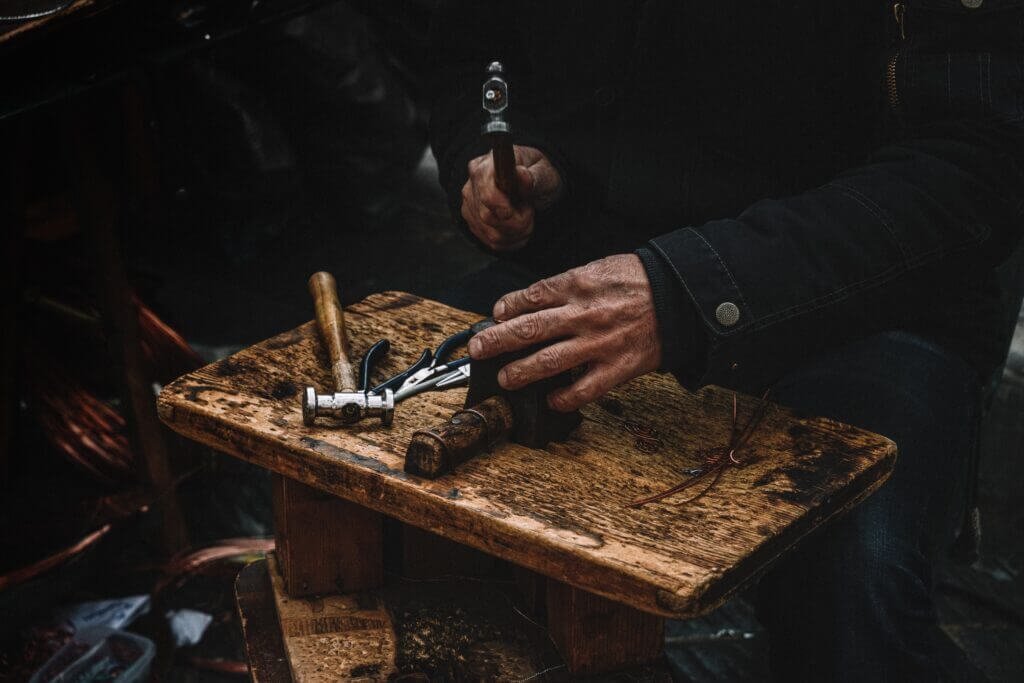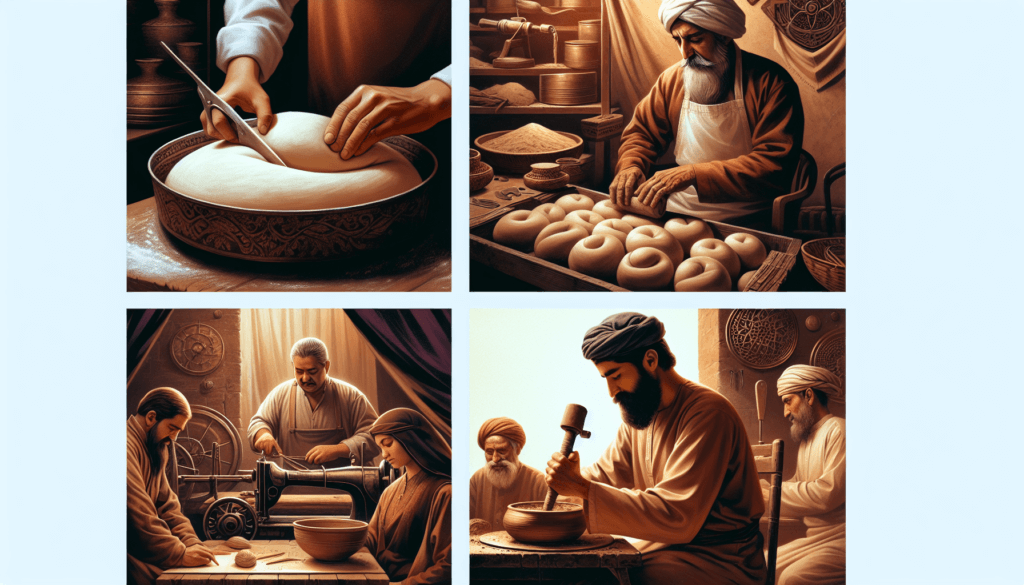Imagine walking through a bustling marketplace, the rich aroma of freshly baked goods wafts your way, and you notice a baker meticulously shaping each loaf of bread by hand. Similarly, another stall displays captivating pieces of jewelry, every bead intricately threaded together. You’re witnessing the work of artisans, individuals who pour their soul into each creation, resulting in beautifully handcrafted pieces. What truly sets these individuals apart, yet, is more than just raw talent. To understand what makes someone an artisan, we’re going to explore the key qualities, including, but not limited to, a finely-tuned skill set, deep-rooted passion, and a commitment to quality over quantity, all of which combine to create the authentic spirit of craftsmanship.

Understanding the Concept of an Artisan
We all appreciate handmade goods that bear the mark of individual craftmanship, but do we really understand the individuals behind these products? What makes someone an artisan? This term is often thrown around casually, but it has a rich meaning that captures history, passion, creativity, and dedication.
Definition of an artisan
An artisan is a skilled individual who practices a trade or craft, using predominantly manual skills to create products that are both functional and aesthetic. These individuals are often self-taught or learn their craft through apprenticeships, and their work is characterized by a great attention to detail, a high degree of skill, and a profound passion for their craft.
Historical perspective on artisanal craft
In the pre-industrial era, artisans were the backbone of the economy. They worked in small workshops and created unique, high-quality goods, using skills that were handed down from generation to generation. This included everything from blacksmiths to weavers. With the advent of industrialization, however, many artisans found their crafts being replaced by machines and factories.
Modern usage of the term artisan
Today, the term “artisan” has seen a resurgence in popularity. It’s often used to refer to people who produce local, hand-crafted, and high-quality goods, such as bread, cheese, clothes, and jewelry. In a world increasingly filled with mass-produced items, the distinctive touch of an artisan is seen as a mark of quality and authenticity.
The Characteristics of an Artisan
What makes an artisan distinct from generic producers? It all comes down to certain key traits.
Passion for craft
Artisans have an unwavering passion for their craft. They derive deep satisfaction from their work, and this genuine love for what they do shines through in their products.
Attention to detail
The attention to detail that artisans give to their work is unparalleled. They painstakingly ensure that every aspect of their product, from design to execution, is completed to the highest standard.
Emphasis on quality
Artisans take pride in the quality of their products. They don’t take shortcuts or compromise on materials or methods – they strive for the very best in every piece they produce.
Innate creativity
Artisans possess an innate creativity that enables them to conceive and create original designs. They often bring an innovative approach to traditional crafts, resulting in products that are both timeless and unique.

Skills Required to be an Artisan
Being an artisan isn’t just about the passion or creativity – it’s also about mastering certain skills.
Mastery of craft
The main skill an artisan needs is mastery over their craft. This involves not only knowing how to create a product, but also understanding the theory and traditions behind their craft.
Excellent hand-eye coordination
Artisans require excellent hand-eye coordination for intricate tasks, whether shaping a piece of pottery, constructing a piece of furniture, or designing a piece of jewelry.
Knowledge of materials
Knowing the properties and potentials of different materials is essential. An artisan needs to understand how to work with a variety of materials in order to shape them into the desired product.
Commitment to continual learning
A true artisan is dedicated to continual learning. Regardless of how skilled they become, they remain open-minded and ever-ready to refine their techniques, experiment with new ideas, and grow in their craft.
Different Types of Artisans
Artisanal crafts cover a vast array of disciplines. Some of these include:
Food artisans
Food artisans specialize in the creation of unique, high-quality food products, such as bread, cheese, wine, and chocolates.
Textile artisans
Textile artisans produce things like fabrics, rugs, and embroideries, often using traditional methods and designs.
Jewelry artisans
Jewelry artisans create beautiful pieces of jewelry ranging from fashionable accessories to intricate works of art.
Furniture artisans
Furniture artisans create functional but beautifully crafted pieces of furniture.
Ceramic artisans
Ceramic artisans create pottery and sculptures, offering a blend of utility and aesthetics.

The Transition to Becoming an Artisan
Transitioning to becoming an artisan can be an exciting, albeit challenging journey.
Deciding to follow passion
Firstly, it involves making the conscious decision to follow your passion. This requires bravery as it often means stepping away from conventional career paths.
Acquiring relevant skills
Next is the acquisition of relevant skills. This phase involves dedicated learning and practice.
Establishment as an independent artisan
Once proficiency is gained, the next step is to establish yourself as an independent artisan. This often involves setting up a workshop and developing a portfolio of your work.
Overcoming challenges
This transition is not without its challenges. Finding a marketplace, competition from mass producers, and the variability in demand for products are but a few obstacles that an artisan may face.
Artisan versus Mass Production
Artisans and mass producers approach design and production quite differently.
Comparing artisanal and industrial techniques
Artisans, compared to industrial producers, offer a personal and unique approach to their products while mass production emphasizes on speed and cost-efficiency.
Impact on the environment and sustainability
Artisans generally have a lesser impact on the environment as they usually utilize traditional and sustainable methods and often source their materials locally.
Quality and uniqueness of the craft
Artisanal work excels in quality and uniqueness as artisans imbue their products with charm and personality, as compared to mass-produced items which tend to be uniform and impersonal.
Employment opportunities and economic contribution
Artisans also contribute to the economy by creating employment opportunities and supporting local economies.

Challenges Faced by Artisans
Despite the positive aspects of their work, artisans face some rigorous challenges.
Market competition
They have to compete with large-scale manufacturers who can produce goods more quickly and at a lower cost.
Inconsistent demand
The demand for artisanal products can be inconsistent, often influenced by changes in consumer preferences and economic conditions.
Difficiencies in sourcing materials
Artisans may face challenges in sourcing high-quality raw materials, especially in quantities that are both affordable and sustainable.
Financial constraints
The financial investment required to set up an artisanal business can also be formidable, and establishing a steady income can take time.
The Role of Artisans in Society
Artisans play a critical role in society.
Preservation of cultural heritage
They help preserve cultural heritage by keeping traditional crafting techniques alive.
Contributing to local economy
By selling their products directly to consumers, artisans keep profits within their community and encourage sustainable local economies.
Environmental sustainability
By using sustainable methods and materials, artisans contribute to environmental sustainability.

Support and Opportunities for Artisans
There are various supports and opportunities available for artisans, too.
Governmental and non-governmental support
Both government and non-government organizations offer support in the form of grants, programs, and resources to help artisans sustain their craft and business.
Artisan communities and networks
Artisan communities and networks offer avenues for support and idea exchange.
Online platforms for artisans
Online platforms offer artisans a global marketplace to showcase and sell their products.
Trade shows and craft fairs
Trade shows and craft fairs allow artisans to display their crafts, network with other artisans, and build a customer base.
Future of Artisanal Industry
The future of the artisanal industry looks promising, yet challenging.
Technological advancements and its influence
While technology poses a threat to traditional techniques, artisans can use technology to their advantage too – from promoting their work using social media to using digital tools to enhance their designs.
Shift in consumer preferences
There’s a growing trend towards artisanal products as consumers value unique, high-quality products.
Impacts of globalization
Globalization provides opportunities for artisans to reach a wider market but also intensifies competition and threatens the survival of local crafts.
In conclusion, being an artisan is not simply about mastering a craft. It’s about preserving traditions, keeping a community’s cultural heritage alive, and contributing to a more sustainable world. It may be a challenging journey, but it’s a worthwhile one for those driven by passion and creativity.



